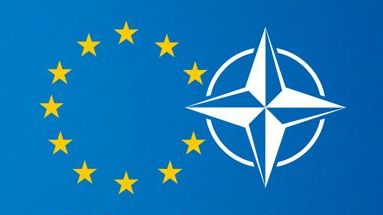
From Howard LaFranchi, the Christian Science Monitor: "If one were to say that Europe is going only in the direction of soft power, I would not agree," says Gen. Stéphane Abrial, NATO’s supreme allied commander for transformation. Pointing to a recent French-British defense accord on pooling certain resources and coordinating more military activities, he says, "That’s not about soft power, it’s an agreement to make the best use of resources to be able to use hard power more effectively … for the benefit of the EU and the benefit of NATO."
General Abrial, who prior to his NATO assignment was France’s Air Force chief of staff, says Europe’s take on the exercise of hard power is rooted in its millenniums of warfare.
"If you look at Europe in history, for centuries Europe was very good at hard power, maybe too good. That period is over, fortunately," he adds, but it means that "most Europeans are tired" of war.
EU’s new role in NATO
Europe has developed a "strong institution for the exercise of soft power," Abrial says, "and that is the European Union." And that is no small thing, he adds, at a time when the "concepts" of power are expanding.
NATO’s job, as a defense alliance, will be to face the challenges of declining defense budgets "head on" with a comprehensive effort to "eliminate unwanted duplications" and "coordinate for more efficiencies."
Image: eu%20nato%206%2021%2010%20pic.jpg
